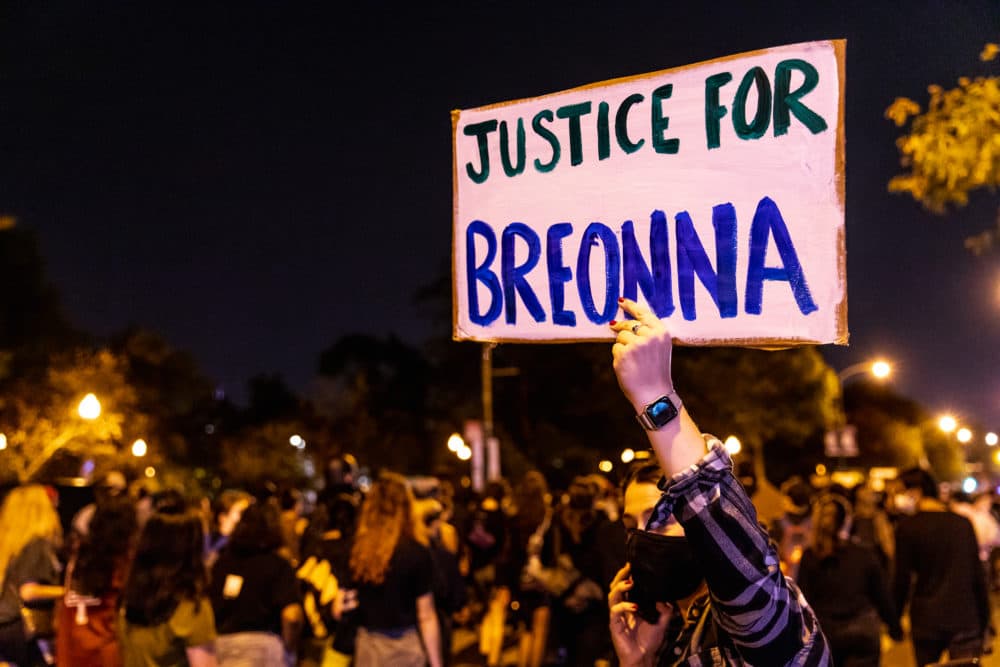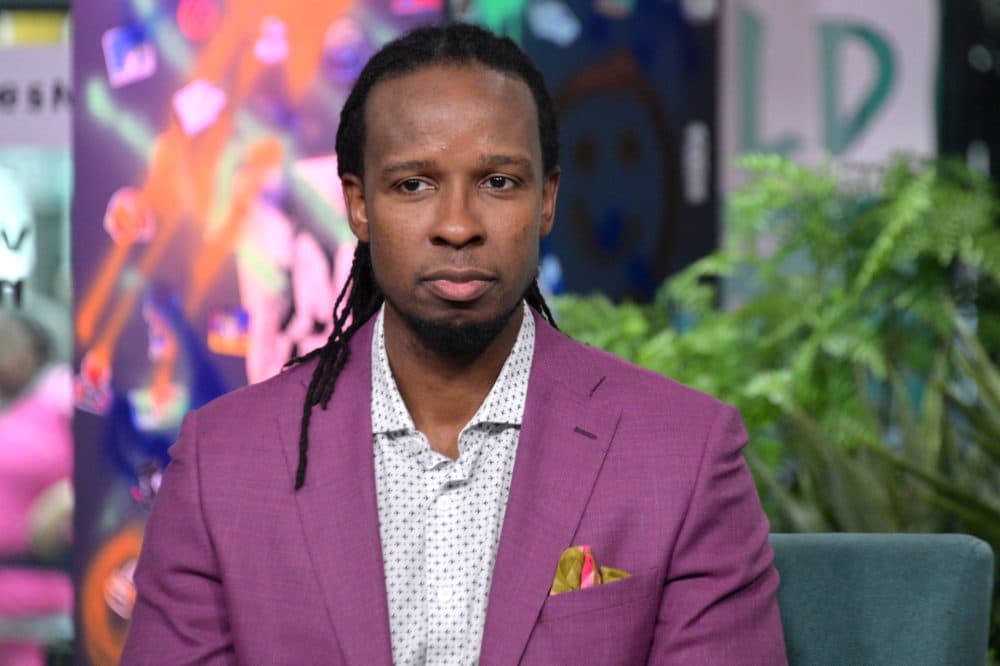Advertisement
After Breonna Taylor, How The Fight Against Racial Injustice Moves Forward
Resume
Minutes after the Kentucky grand jury announcement that no charges would be filed against two of the Louisville police officers involved in the shooting death of Breonna Taylor, people took to the streets in cities across the country Wednesday night.
Six months ago, Taylor was in her apartment when police broke through the door for what they said was a late-night drug raid. Her boyfriend opened fire, saying he believed the officers were intruders. Police fired at least 30 shots into the apartment, which authorities say was justified because they had been fired upon.
The only charges in this case are against one officer, whose shots went into another apartment. The outcome, for many, is another example of the pervasive injustices against Black Americans.
Author and historian Ibram X. Kendi, founding director of Boston University's Center for Antiracist Research, is echoing the pain, anger and uncertainty felt by many Americans following the grand jury decision.
“To not indict the officers for murder is to claim #BreonnaTaylor killed herself,” Kendi tweeted on Wednesday. “Racist America constantly kills Black people and then tells Black people we killed ourselves. Racism extends past death.”
So many Black people have been killed by the police, COVID-19 and white supremacist vigilantes, Kendi says. And yet, justice is always lacking in avenging for their deaths.
“When it comes to bringing them justice by declaring that they were not in the wrong, justice is always lacking — justice in the sense of indicting someone, the people who actually killed them, or even indicting our society's racist policies and seeking to change them,” he says. “Instead, Black people were always typically blamed for our own deaths.”

Kentucky Attorney General Daniel Cameron said at a press conference Wednesday that Taylor’s shooting was justified. The word “justified” is really sitting with people because it sounds contrary to the facts of the case. Now, there is a call for all of the evidence to be made public.
Kendi says the evidence should be released, so the public can determine whether the officers really were justified in the shooting or if the Kentucky attorney general chose not to indict the officers “because it would be better for his own personal political career.”
“All of the public evidence that we know of does not justify her death,” Kendi says. “And so that's the thing: If you're claiming it's justified, then show us the evidence.”
As the nation mourns Taylor’s death and the fact that her killers haven’t been brought to justice, the next step is to transform that energy into meaningful power and policy changes, Kendi says.
“In order to reimagine public safety, we're going to have to reimagine violence and danger,” which is often connected to the color of one’s skin and specifically Black people, Kendi says. “That is indeed a racist idea.”
That very racist foundation is why Black people don’t have the right to defend themselves, particularly when confronted by white police officers, Kendi says. It’s also why Taylor’s shooting was seen as justified by law enforcement officials.
“That's wrong,” he says. “We need to completely reimagine the way we understand justice, self-defense, and certainly who's dangerous and what's dangerous, because for me, our system, our criminal justice system, is dangerous — not Black people.”
Ashley Locke produced and edited this interview for broadcast with Tinku Ray. Samantha Raphelson adapted it for the web.
This segment aired on September 24, 2020.

